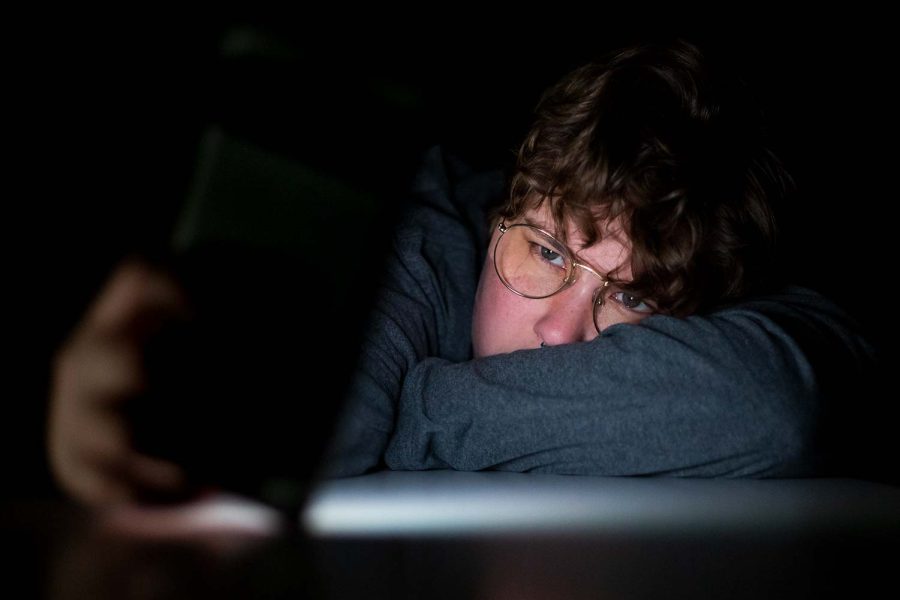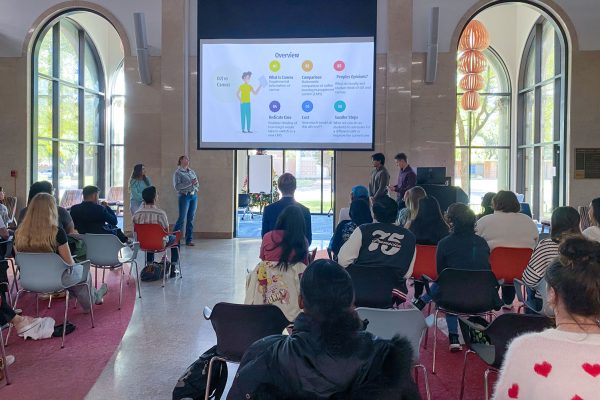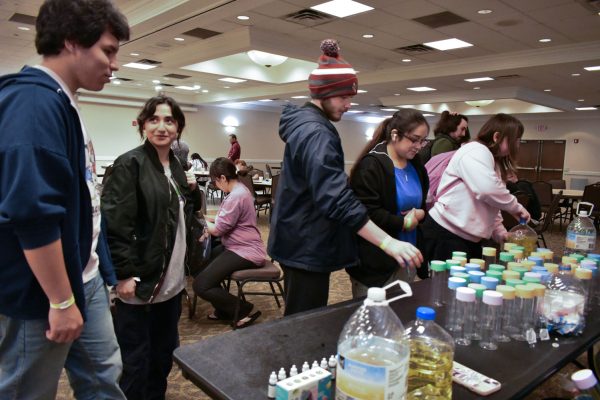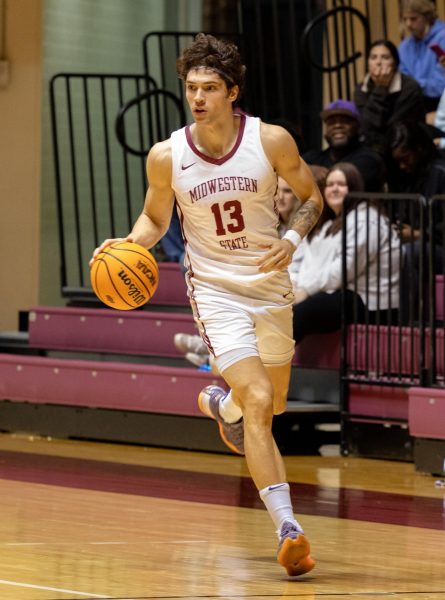Collegiate Health: social media and mental health
Among teens who reported suicidal thoughts, 6% of American Instagram users traced the desire to kill themselves to Instagram according to files from Facebook’s internal message board, Feb. 10.
Social media is present seemingly everywhere and Midwestern State is no exception. Student organizations post updates on Instagram, MSU posts campus updates on Facebook and Twitter and future graduates search for jobs on LinkedIn. Social media use is almost inseparable from a college lifestyle. Online platforms help students keep up with campus events, stay in contact with their friends and stay informed about current events. However, social media use has a more sinister side that users are only recently becoming acquainted with. Negative mental health effects of many platforms are becoming more substantially documented and evaluated by the public eye. Is social networking worth its potential pitfalls? Tori Barnes, social work freshman, emphasized some of the positive aspects of social media.
“I use Snapchat, Facebook, Instagram, Tiktok… all the time. [My favorite] would have to be Facebook because I get to scroll, I get to laugh, I get to react… you get to do a lot of stuff you don’t get to do on Snapchat, Instagram, when you’re on Facebook… social media affects my mood in a good way because it’s funny. Some stuff is really funny and if I’m mad, I go to social media and start laughing,” Barnes said.
However, while Barnes stated that social media is a positive force in her life, she understands how it could be harmful to some. She expressed that online presences can create unrealistic expectations that are difficult to live up to.
“People like to compare themselves to models on Instagram and that blows their self-esteem. People like to act like they have this or that because this person has this or they want to have it… copycatters, you know,” Barnes said.
In September of 2021, the Wall Street Journal made waves by reporting on Facebook company research that demonstrated that their subsidiary platform, Instagram, was causing mental health issues for teen girls. This research was displayed on easy-to-digest infographics that displayed statistics regarding a myriad of sensitive issues and their correlations with Instagram usage, including self-harm, suicidal ideation and body image.
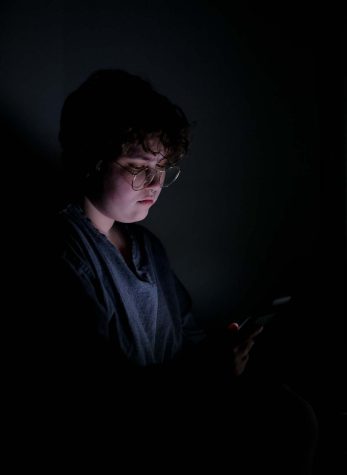
“The tendency to share only the best moments, a pressure to look perfect and an addictive product can send teens spiraling toward eating disorders, an unhealthy sense of their own bodies and depression, March 2020 internal research states. It warns that the Explore page, which serves users photos and videos curated by an algorithm, can send users deep into content that can be harmful,” the Journal reported.
In 2018, a University of Pennsylvania study found that unlimited social media use can lead to negative mental health outcomes. It suggested that limiting the use of social networking platforms can mitigate the psychological harms they can cause. Two groups of people were studied, one that used social media as normal, and one that limited their use to 10 minutes each day on each separate platform.
“Experimentally limiting social media usage on a mobile phone to 10 minutes per platform per day for a full three weeks had a significant impact on well-being. Both loneliness and depressive symptoms declined in the experimental group,” the study stated.
Although many negative effects of social networking have been recently documented, some professors on campus view it as a mixed bag of risks and benefits. David Carlston, chair of the psychology department on campus, discussed both sides of social media use.
“On the positive side, social media can provide a place of belonging and connection for individuals. Social connection and group membership are often strongly associated with self-esteem. As we are accepted and valued by members of our social circle, our worldview is confirmed and, more importantly, we are able to accept and value ourselves…On the other hand, excessive or problematic social media use can be associated with a variety of mental health difficulties, including low self-esteem. Social media use increases out awareness of what others are doing that we might not otherwise have known about. As a result, I may now feel excluded or left out…The content that appears on social media is selective, often edited, and, often, doesn’t reflect the whole picture. Consuming high levels of social media changes our perception of normality and establishes a nearly impossible standard to measure up to,” said Carlston.
Isaac Christiansen, assistant professor of sociology, said that some of the harms social media causes can be traced back to one of its primary purposes; to create profit. He stated that this can lead to social media having some addictive properties.
“I think that’s very true. I think it’s extraordinarily dangerous. I was just watching with my own family. I’ve watched it with many different people. It’s visible, people don’t interact with each other, they’re stuck on their phones…It’s deliberate. I mean, these are for-profit companies that benefit the more people spend time on their phone, the more money they make, the better they are to sell your posts and you to advertisers. With that dynamic, it just led to a pernicious political economy…Human beings have an enormous propensity to become addicted to things. Instead of trying to curtail this sort of thing, the companies that benefit will try to encourage it.” Christiansen said.
MSU students provided a range of opinions on and purposes for social media use. Brennan Wright, theater sophomore, mentioned its potential for making connections and keeping up with pop culture.
“The theater department that I’m in primarily uses Facebook to get information out…I’m a geek, any movie news, any stuff like that, I’m primarily looking out for that, I usually don’t post anything, I’m just kind of see like what’s new that’s announced today…the nerd aspect of me is able to keep up to date on whatever exciting’s coming out…There’s the obvious thing where it’s like friends and family that I haven’t seen or haven’t seen since high school or whatever, I get a little post about what they’re doing, what they’re up to and it’s cool to see they’re still going on, they’re still out there doing really cool stuff, and it’s a nice little reminder that even though I don’t see them as much or haven’t talked to them, they’re still having a good life,” Wright said.
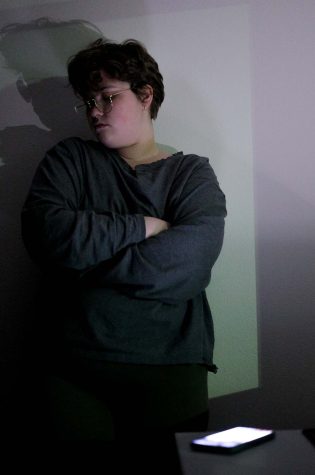
Theater junior Sunny Scabora talked about some of the potential pitfalls of social media for neurodivergent people. He explained how he has experienced difficulties with social media in the past.
“I have a couple of neurodivergences, I’m ADHD, and I’m Bipolar. One thing with social media is that ADHD does not lend itself well to things like Twitter and things like that, that distract you very easily… With my Bipolar too, I get major depressive episodes and so a lot of the times what would usually be me thinking “wow these people are so happy” would be like “wow why can’t I be happy?” that kind of thing. It sometimes can be a pretty severe effect on my mental health when I get one of those episodes.”
Carlston offered advice for students using social media. He accentuated the importance of being actively aware of time spent using social networks and the feelings associated with that time.
“I think that my biggest recommendation would be to monitor and be aware of your social media use. Monitor the time that is spent, your mood prior to and subsequent to your use. Monitor your time thinking about social media. Ask feedback from others. I might even try a “social media fast” for a few days or a week. That is a great way to gain insight into your social media use,” Carlston said.
![Assistant sociology professor Isaac Christiansen said "[Social media] are for-profit companies that benefit the more people spend time on their phone, the more money they make, the better they are to sell your posts and you to advertisers," Feb. 10.](https://thewichitan.com/wp-content/uploads/2022/02/socialmedia3-web-475x306.jpg)

Howdy hey! I'm back for my final year here at MSU, and I intend to leave the Wichitan better than I found it.
Going into my fourth year, I will be working...



